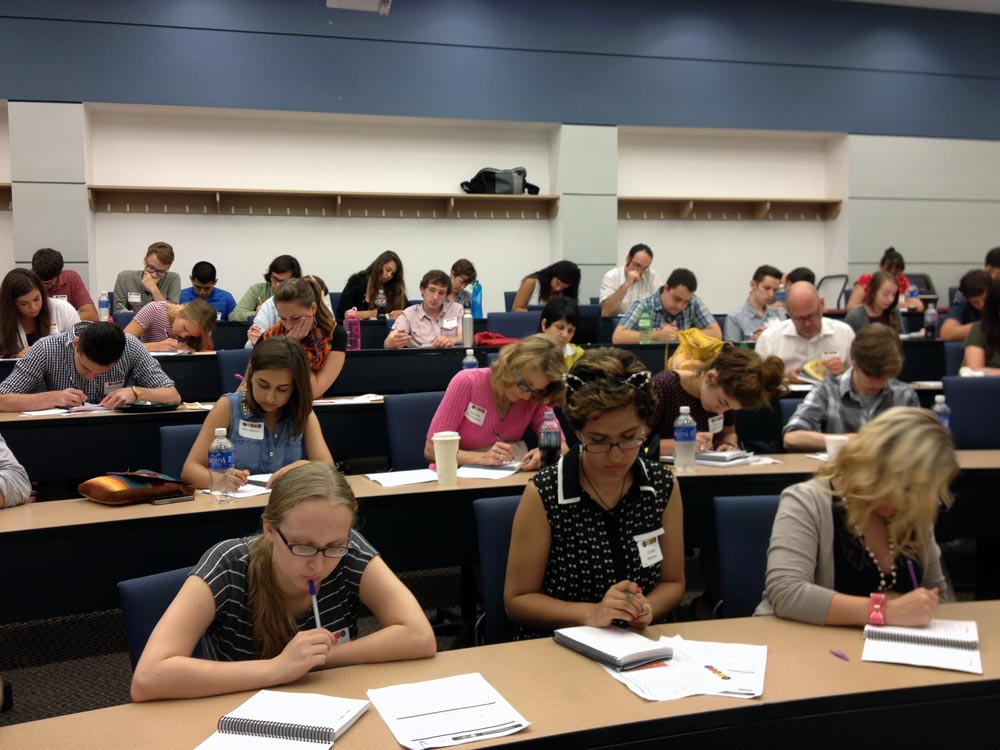
High-stakes assessment of student learning often involves the evaluation of a student's final "product," whether it is a term paper, final exam, or other type of project. Students will be better prepared for high-stakes assessment by providing them with frequent and timely
low-stakes assignments.
Characteristics
- Encourages synthesis across an entire course or discipline
- Requires creation of discipline-specific products (research papers, presentations)
- Is often summative, requiring demonstration of the degree to which students have learned key course concepts and skills
- Usually represents a larger percentage of the course grade
Examples
Beginning with sample course learning goals, the following chart can help you identify an effective high-stakes classroom assessment or appropriate types of questions.
|
Ability to define key course terminology and recall facts
|
- Writing assignments that require appropriate use of disciplinary or course terminology
- Exams with
- Fill-in-the-blank questions
- Matching questions
- Multiple choice questions
-
Short answer questions
|
| Synthesis of key course concepts |
- Case studies
- Debates
- Essay exams
- Final projects
- Multiple choice questions
- Presentations
- Portfolios
- Research projects
- Simulations
|
|
Application of discrete research, technical, performance, or meta-cognitive skills
|
-
Writing projects
- Case studies
- Debates
- Performances
- Presentations
- Simulations
|
|
Ability to transfer knowledge or skills and apply them to new situations
|
- Writing projects
- Case studies
- Debates
-
Simulations
|
| Creation of new knowledge |
- Portfolios
- Video essays
- Artwork
- Websites
- Presentations
- Research projects
- Thesis or dissertation
|